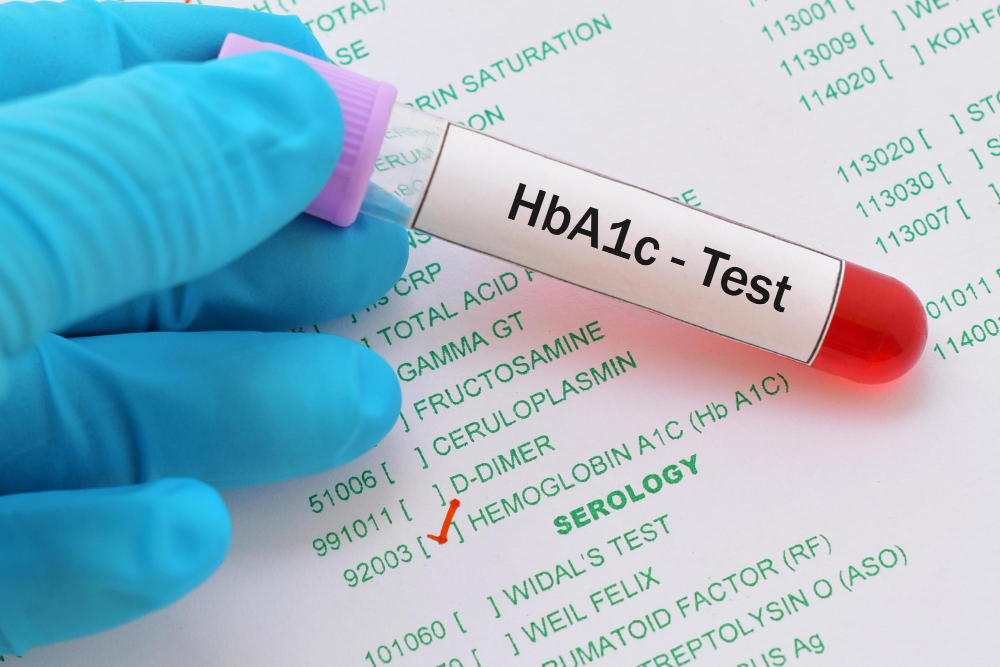What is HBA1C?
HBA1C is a blood test that shows your average blood sugar level over the past three months. Many doctors use the HBA1C test to check for diabetes or to see how well diabetes is managed. Because it gives a long-term view, it is more helpful than a single blood sugar test. The HBA1C test is also called the glycated hemoglobin test.
Why is HBA1C Important?
HBA1C is important because it helps find out if your blood sugar is too high or too low over time. High HBA1C levels can lead to health problems, such as heart disease, kidney damage, and nerve issues. On the other hand, keeping your HBA1C in a healthy range lowers your risk of these problems. Therefore, doctors often use this test to guide treatment plans.
How is HBA1C Measured?
To measure HBA1C, a small blood sample is taken from your arm. The test checks how much sugar is attached to your red blood cells. Since red blood cells live for about three months, the HBA1C test shows your average blood sugar during that time. You do not need to fast before this test, which makes it easy for most people.
Normal and Abnormal HBA1C Ranges
Knowing your HBA1C range helps you understand your health. Here are the common ranges:
Your doctor may set a different target based on your age or health. For example, some people with diabetes may aim for an HBA1C below 7%.
Causes of High or Low HBA1C
Many factors can affect your HBA1C level. For instance, high HBA1C often means your blood sugar has been high for a while. This can happen if you eat too many sugary foods, do not exercise, or miss your diabetes medicine. Sometimes, stress or illness can also raise your HBA1C. On the other hand, low HBA1C may be caused by certain blood disorders or if you take too much diabetes medicine.
Symptoms and Health Risks of Abnormal HBA1C
Often, high HBA1C does not cause clear symptoms. However, you may notice:
If your HBA1C stays high, you may face serious health risks, such as:
Low HBA1C is less common but can mean your blood sugar drops too low, which can be dangerous.
Diagnosis and Interpretation of HBA1C Results
Doctors use the HBA1C test to diagnose diabetes and pre-diabetes. If your HBA1C is above normal, your doctor may repeat the test to confirm the result. Sometimes, other tests are needed to get a full picture. Your doctor will explain what your HBA1C means and what steps you should take next.
Treatment and Management Options
If your HBA1C is high, your doctor may suggest:
For some people, small changes can make a big difference. However, others may need more help from their healthcare team.
Lifestyle Tips to Maintain Healthy HBA1C Levels
There are many ways to keep your HBA1C in a healthy range. For example, you can:
With these steps, you can help control your blood sugar and lower your HBA1C.
Prevention Strategies
Even if you do not have diabetes, you can take steps to prevent high HBA1C. For instance:
By making these choices, you can reduce your risk of diabetes and other health problems.
Conclusion
In summary, the HbA1c test is a crucial tool for understanding your blood sugar health. By showing your average levels over time, it helps you and your doctor make informed decisions. If you have questions about your HbA1c or want guidance on lowering it, consult a healthcare professional at TrueHealth Pathology for personalized advice.

